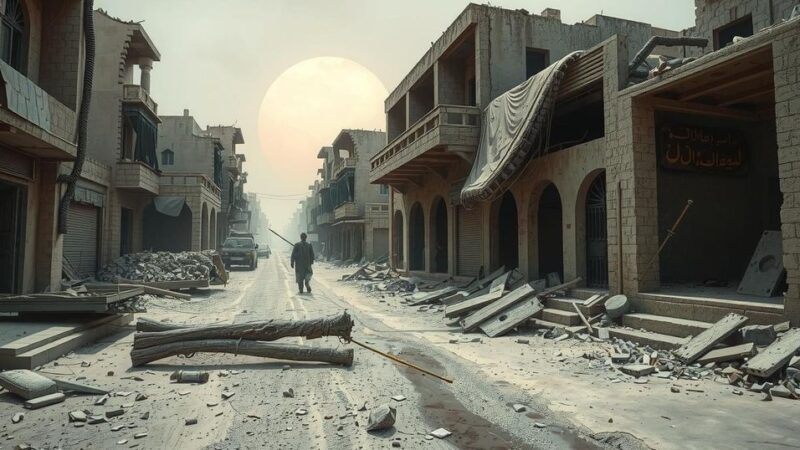The arrest of South Sudan’s First Vice President Riek Machar has escalated tensions and raised fears of renewed conflict. This event signals a breakdown in the power-sharing agreement with President Salva Kiir and highlights ongoing political instability and violence in the country. The UN and international observers warn of potential devastation, urging both leaders to pursue dialogue to avoid a descent into widespread conflict.
The recent arrest of South Sudan’s First Vice President Riek Machar has heightened tensions in the nation, potentially pushing it toward widespread conflict. This event transpired amidst a progressively deteriorating power-sharing agreement with President Salva Kiir, which has already led to a fragile political landscape. The arrest was executed by armed forces at Machar’s residence in Juba, marking a significant escalation in a prolonged rivalry between the two leaders.
A declaration from Machar’s party condemned the unconstitutional actions of the Minister of Defense and the Chief of National Security, who trespassed into his residence with over 20 armed vehicles. According to the statement, Machar’s bodyguards were disarmed, and he received an arrest warrant with unclear charges. Efforts are currently underway to relocate him.
The United Nations Mission in South Sudan (UNMISS) highlighted that the situation might result in further conflict, emphasizing that breaches of the 2018 peace agreement would not only devastate South Sudan but could also destabilize the surrounding region. Despite formally declaring independence in 2011, South Sudan has continued to grapple with poverty and insecurity since the implementation of the peace deal.
Analysts indicate that President Kiir, at the age of 73, might be attempting to secure his political future by sidelining Machar through various cabinet changes. Since February, over 20 of Machar’s allies from the unity government and military have been arrested, many without access to their families or legal representation. Incidents of violent clashes have also been reported between the factions loyal to each leader, particularly in Upper Nile State.
Following Machar’s arrest, his military wing denounced recent attacks on military bases and training centers as acts of “terrorism,” calling for international intervention. These facilities were integral in preparing opposition forces for a unified army, as outlined in the peace agreement. The Kiir-aligned army has not confirmed any of these incidents but has accused Machar’s forces of aggressive maneuvers.
Concerns among civilians in Juba have surged due to escalating political tensions. Locals are anxious about a potential return to conflict, with citizens urging their leaders to prioritize dialogue over violence. Despite Kiir’s reassurances of commitment to peace, ongoing violent encounters have caused alarm, particularly in Nasir County, where clashes are becoming more widespread.
Internationally, observers are increasingly worried about South Sudan’s situation. Countries such as Norway and Germany have closed their embassies in Juba, while the British and US embassies have scaled back their operations and recommended that their citizens exit the country. The international community continues to pressure both leaders to engage in meaningful dialogue before the situation deteriorates further.
The arrest of Riek Machar precipitates a precarious moment in South Sudan’s history, with fears of returning to civil conflict looming large. The underlying threats posed by the ongoing political tensions, coupled with potential violations of the 2018 peace agreement, have led to heightened concerns among local populations and international observers alike. The need for dialogue and mutual understanding between the rival parties remains critical to stabilizing the region and preventing further violence.
Original Source: www.news.com.au






